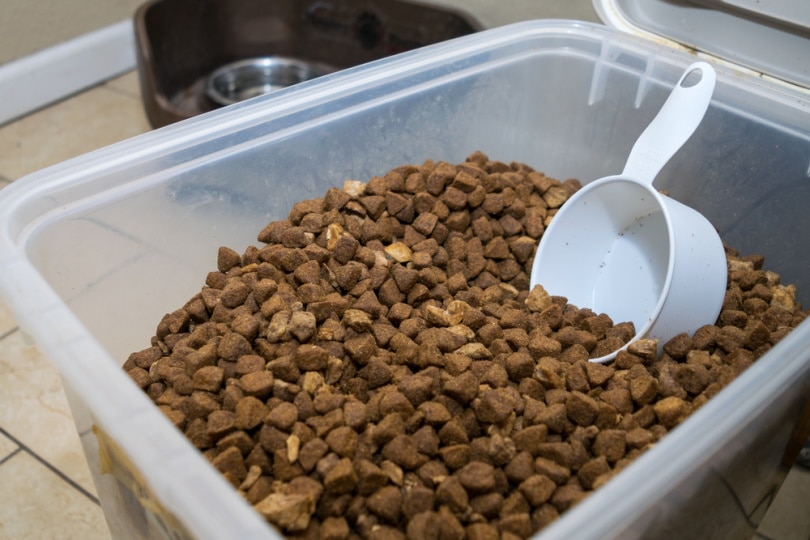How Fast Can a Labradoodle Run? (Facts & FAQs)
Updated on

Labradoodles are energetic and athletic hybrid dogs that make excellent family companions. A cross between the Labrador Retriever and the Poodle, these dogs are naturally built for speed, but just how fast they can go depends on their age and body condition. For example, a fit, standard-sized adult Labradoodle who engages in a walk or run with its owner daily can reach speeds between 25 and 30 miles per hour, and they can reach 35 miles per hour during a sprint—that’s pretty impressive!
Read on to learn more about the athletic Labradoodle and its running speed capabilities.
What Factors Play a Role in The Labradoodle’s Speed?
As we’ve mentioned, a fit, standard-sized Labradoodle averages 25 to 30 miles per hour, with speeds up to 35 miles per hour during a sprint. Although, certain factors have a hand in just how fast they can go. Labradoodles are energetic, and a standard adult requires at least 60 minutes of exercise twice daily. If you take your dog on a walk or run twice a day for that length of time, your Labradoodle should have no problem reaching these speeds.
Another factor is the terrain your Labradoodle is running on, such as grass or asphalt—the better the traction, the faster your Labradoodle can go. It’s important not to let your Labradoodle run on rough or rocky terrain to avoid injury to the paws.
How Old Should My Labradoodle Be to Take on Runs?

This is an excellent question because it plays a vital role in your Labradoodle’s health. If you’re a runner or jogger and want your Labradoodle to accompany you, your Labradoodle should be fully grown and physically conditioned. With that said, the standard Labradoodle is considered fully grown at 12 to 18 months. You should avoid rigorous exercise and long runs until your Labradoodle is an adult. You can take your puppy on a walk or a little run but ensure you don’t overdo it.
Exercising your Labradoodle too much too early can hinder the growing stages and cause joint and mobility issues later in life. For example, puppies should be exercised according to their months of age. A general rule of thumb is to exercise puppies 5 minutes for every month of age—a 4-month-old Labradoodle should have 20 minutes of exercise twice daily. A 6-month-old should have 30 minutes twice daily. Exercise can be walking, light running, playing fetch, or swimming, to name but a few. In short, wait until your Labradoodle is fully-grown before taking them on long jogs. It’s also a good idea to consult your veterinarian before engaging your Labradoodle on long runs with you to ensure he’s fit to do so.
How Fast Are Labradoodles Compared to Other Animals?
Now that we know how fast Labradoodles can run, let us now compare their speed to a few other dog breeds (including their parent breeds, the Labrador Retriever, and the Poodle) to put their speed into perspective.
| Greyhound | 40 – 45 mph |
| Rottweiler | 20 – 25 mph |
| German Shepherd | Up to 30 mph |
| Labrador Retriever | 20 – 30 mph |
| Standard Poodle | Up to 30 mph |
| Doberman Pinscher | Up to 32 mph |
Conclusion
Labradoodles are excellent family companions, and if you’re a jogger, you can have an outstanding jogging partner. Labradoodles are pretty fast, but you won’t be able to outrun them —the average human can reach speeds up to 8 mph for males and 6.5 mph for females. Even a trained athlete can only manage 14 to 17 mph, which puts the Labradoodle’s speed more into perspective.
Remember to exercise your Labradoodle appropriately according to his age, and never force your Labradoodle to run when he’s not fit or conditioned to do so.
Featured Image Credit: Chedko, Shutterstock












